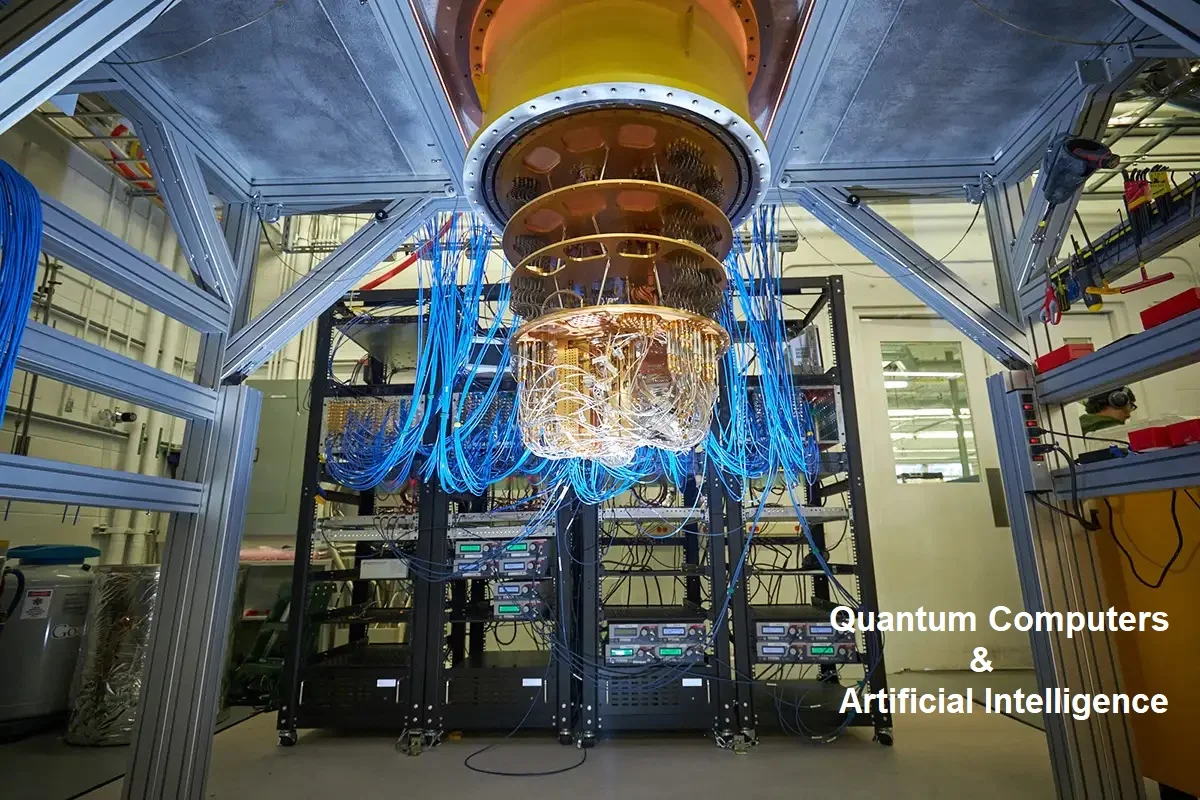Quantum computers promise a big technological leap: they can calculate the most complex calculations in seconds and thereby replace years of laboratory research on new drugs, decisively advance the development of artificial intelligence (AI) – or even reliably predict the weather.
A Japanese IT company, Fujitsu, is developing such a quantum computer. However, in an interview with the Handelsblatt newspaper, Vivek Mahajan, head of technology, also warns of cybersecurity risks: “When quantum computers become powerful and stable enough, they can easily break many common encryption systems.
Therefore, tech companies should also think about these issues and, for example, change the encryption of their data to “quantum-safe” methods. Because quantum computers are still too small and unreliable to be dangerous. But Fujitsu CTO Mahajan warns: “The essence of quantum computing is that it can happen in six months or six years.”
Artificial Intelligence Is Driving the Demand for Quantum Computers
The likelihood of a breakthrough is growing because more and more companies are conducting intensive research in the field of quantum computers. Demand has increased significantly, Mahajan said, because “tremendous computing power is needed” for the digitization of business and life, and the AI boom. And so, the professionals in this field can upskill in AI through Artificial Intelligence courses online.
Quantum computers could provide the next big leap in performance, although they only compute solutions that a normal computer can come up with. The decisive factor is speed: even ordinary supercomputers would take many years for complex calculations, quantum computers only a few seconds.
Many encryption systems are based on the fact that their algorithms are so superior to the conceivable computing power of future computers that it will take hundreds of years to break them. Simply put, today’s computers take too long to guess a password and quantum computers can try thousands of possible passwords at the same time. This also makes blockchain technology vulnerable.
More States, More Power
Ordinary computer chips were built from ever-smaller circuits and function electronically: each computational unit, called a bit, has either a value of “0” or “1” or an “on” or “off” state – current flowing or not. Quantum computers, on the other hand, compute at the subatomic quantum level, where different physical laws apply.
A quantum bit called a qubit can also have both states at the same time during computation. This means that qubits can compute much more complex data; The performance of a quantum computer doubles with every qubit and thus grows exponentially.
It is this growth that makes progress in development so unpredictable: if a researcher finds a crucial piece of the puzzle to connect qubits in large numbers, performance immediately jumps. If a quantum computer thus surpasses the performance required to decrypt conventional security systems, most of the world’s codes would theoretically be broken in one fell swoop.
A controversial scientific paper from China shows just how explosive the problem is. In December 2022, a group of experts said they had succeeded in cracking RSA algorithms using a quantum computer, which is used, for example, for online banking and data protection.
However, they only deciphered a relatively short code using a small quantum computer with ten qubits. The researchers explained that they have not yet ported the method to larger computers. As a result, it is not yet clear whether a quantum computer with its method is actually faster than a conventional computer.
Chinese researchers claim that it takes only 372 qubits to get to cracking codes using their method. And although many researchers assume much higher numbers, it is clear that the developers of quantum computers are already very close to this leap.
Cracking passwords in seconds could be a reality, warns Fujitsu’s head of technology, Vivek Mahajan.
CNBC
Fujitsu Claims Technology Leap Will Happen At 10,000 Qubits
But when will quantum computers really cross the critical threshold and become powerful codebreakers? According to Fujitsu, this goal is not yet so close: breaking the RSA encryption system will require a fault-tolerant quantum computer with 10,000 qubits.
The researchers came to this conclusion from an experiment with their own quantum simulator. This is a conventional supercomputer that virtually computes 39 stable qubits. “It gives you an error-free environment that mimics a lot of what quantum computers do,” Mahajan said. “I think with them you can solve 70 percent of the problems you want to solve with quantum computers.”
However, breaking encryption algorithms still belongs to the remaining 30 percent. Moreover, even a real quantum computer with 39 stable qubits would take 104 days to do this, but such a computer does not exist.
The problem lies not only in the number of qubits but also in their short lifetime and high susceptibility to errors. “If our competitors say they have 400 or 500 qubits, but they’re all unstable, what’s the point?” says Fujitsu’s head of technology, Mahajan. This is due to the fact that it is very difficult to make computing units more reliable and to combine them into a large number. Moreover, for most methods, the qubits must be extremely cool, close to absolute zero – minus 273 degrees Celsius.
Fujitsu is collaborating with the Riken Research Institute to build its own quantum computer. Yasunobu Nakamura, who is considered one of the inventors of the first stable qubit, is also involved in this project. The Fujitsu computer currently has 64 qubits. This year, Fujitsu wants to provide this model for testing to other companies. By 2026, the team wants to scale up the device to 1,000 qubits.
Great Power Race
Geopolitically, the major powers are also in a race to be the first to make a breakthrough in quantum computing. China is actively researching the technology, while in the US, Google and IBM are moving forward and making their research available to companies. IBM, for example, exported its Q One system to Germany and Japan in 2021 to great fanfare.
Europe is also doing research; German-Finnish company IQM received an investment of 128 million euros last year. This week, Pasqal of France announced an investment of 100 million euros.
Japan is also a serious contender in advanced research. The government and industry want to use Japan’s technological power to establish the country as a quantum player and a major supplier of key technologies.
Mahajan, an Indian who joined Fujitsu from IBM, believes his new country has a chance to keep up in the global race. “I think Japan has done a good job of supporting basic research, not only in quantum technology but also in photonics and mobile networks.”
 SlushWeb Live the Way You Love
SlushWeb Live the Way You Love


